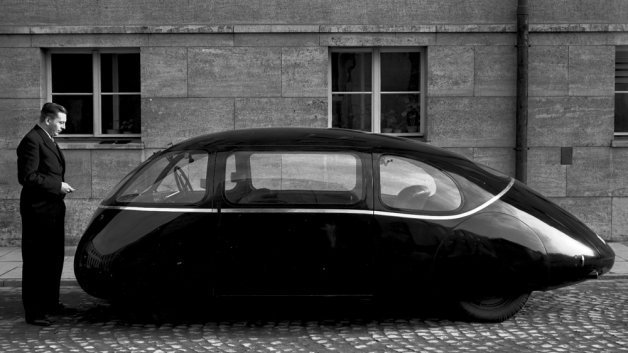But, there was one small ray of excitement in this otherwise depressing time – the automobile industry was in a renaissance.
Manufacturers both large and small were experimenting with designs and technologies that remain influential to this day. But for every Fiat Topolino, Bugatti Type 57 and Duesenberg SJ, there was an innovative or interesting offering that's been lost to the pages of history. One such car is the German Schlörwagen, an ultra-aerodynamic seven-seater based on a Mercedes-Benz 170H.
At seven feet wide and with a coefficient of drag of just 0.15 (for reference, that's far more slippery than modern aerodynamic champs like the Toyota Prius or Tesla Model S), the Schlörwagen's story is fascinating. The key to this sleekness is in the obsessive attention to streamlining the body. Aside from the teardrop shape, the windows are flush with the body, and as shown when a scale model is put in a wind tunnel, air is able to pass over the car with little disruption.
Wired has a great feature on the Schlörwagen, from its birth through to World War II and on to its disappearance, following its acquisition by the British Military Administration. Head over and take a look, or, scroll down for video of the sleek seven-seater's scale model in the wind tunnel.



